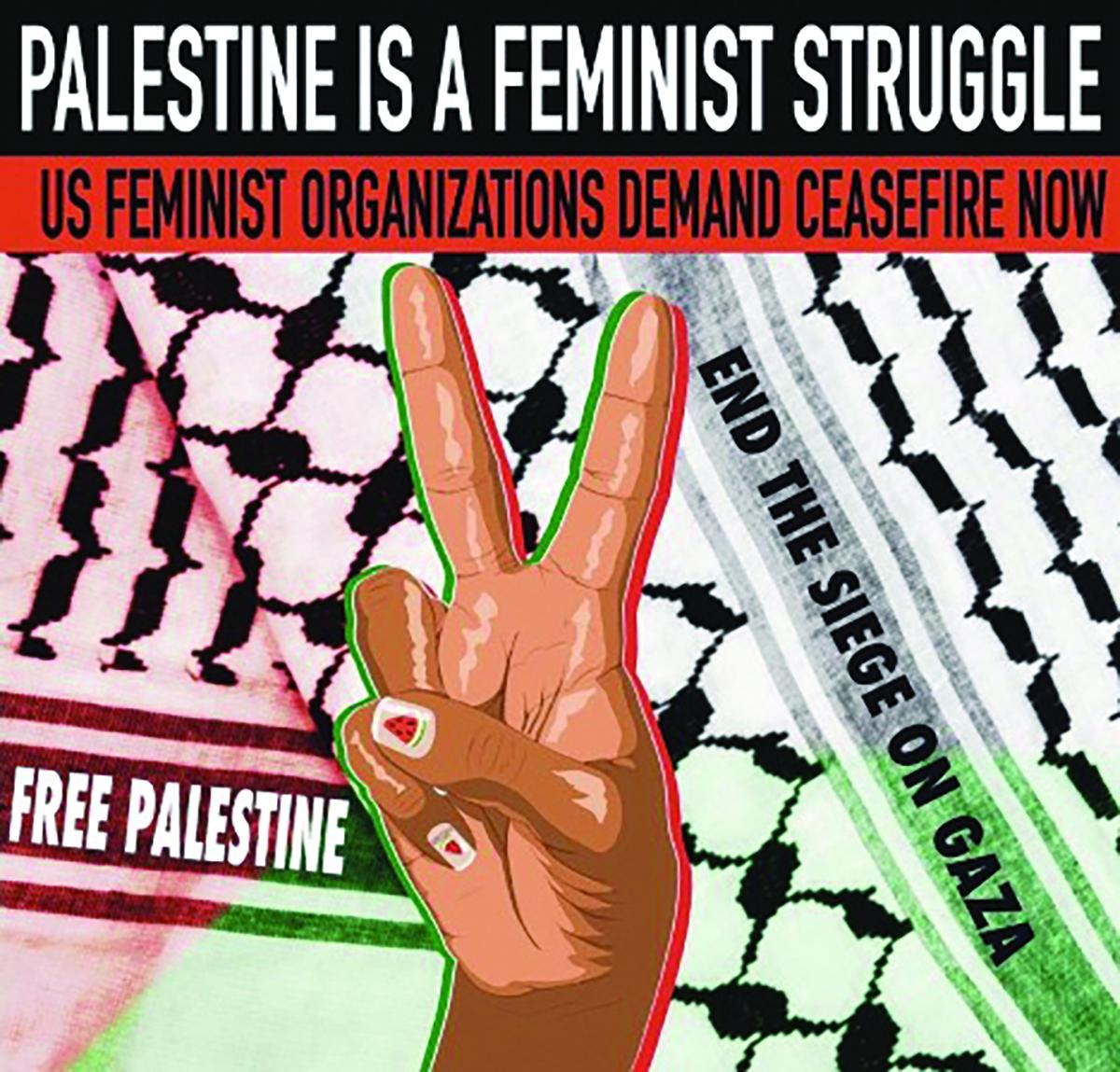
by Tali Bitton, PhD Candidate, Department of Philosophy
For many colonized women, gender-based violence (GBV) is never solely about their being women. When considering GBV within Palestine and Israel, like other forms of political violence, GBV functions as a mechanism of male supremacy within and across both peoples as much as a mechanism of settler colonization. But whereas Israel has a long history of documented GBV against Palestinians (as the UN has found occurred systematically in Israel’s current genocidal campaign in Gaza1), the view of GBV within Israel is often presented in inverted form.
Take, for example, the “Stricter Penalties for Sexual Offenses for Nationalist Motives Bill,” passed by Israel’s legislature, the Knesset, in July of 2023. Introduced by right-wing Knesset members, the Bill maximizes the penalties for anyone deemed to have committed sexual violence for “nationalistic, terrorist” motives, with its proponents claiming such violence is on the rise. However, not only have groups like the Israeli Association of Rape Crisis Centers challenged these claims, many Palestinian and Israeli feminists criticized the Bill for entrenching rather addressing GBV for Palestinians and Israelis, all while obscuring the fundamental cause—the colonial occupation of Palestine itself.2
In my research, I am interested in exploring how the asymmetries of meaning and political salience of GBV (alongside other forms of domination) are indicative of asymmetries in Palestinian and Israeli social reproduction. I work in Social Reproduction Feminism (SRF) which allows me to examine how the daily and generational renewal of human life, and with it human labor power, is essential to the cyclical persistence not just of inequality but of capitalism.3
SRF begins with the recognition that human labor is the heart of creating and reproducing societies, yet in capitalist ones human labor is not organized for making free, self-determining, and flourishing humans. Rather, capitalism transforms entire societies toward profit-making, created by the many to be owned by the very few. Throughout a workday, and over the course of working-class life, one’s capacities to labor are exhausted and require replacement outside work, by replenishing current laborers’ abilities (through domestic labor), producing new laborers, or reshaping the class of available laborers (e.g., migration). Crucially, working-class women are made to bear the double role of social reproductive laborer and waged laborer, such that changes in class composition (say through colonization and forced displacement) generate specific social reproductive crises—which place heightened demands on women’s labor across both roles.
Through SRF I examine how Zionist colonization intensified capitalist development in Palestine and Israel beginning in the mid-19th century, and how the growth of settler capitalism has generated social reproductive crises for Palestinian and Israeli working classes, albeit in very different ways. The critical purchase of SRF is that it shows how the capitalistic nature of the occupation imbricates the settler colonial elimination of Palestinians as a people (including their exploitation by Israeli capital) with the capitalist contradictions and social reproductive crises in Israeli society.
Indeed, for Palestinian feminists, the foundational role settler colonialism plays in engendering GBV has been a central focus of their struggles for gender and national liberation. In August 2019, Israa Ghrayeb, a Palestinian woman from Bethlehem, was brutally beaten to death by her family members—one of 34 Palestinian women killed that year in acts of feminicide. Thousands of Palestinian feminists took to the streets in protest across historic Palestine. These protests coalesced into the Tal’at movement (“stepping out” or “rising up” in Arabic). Tal’at demanded accountability for these feminicides, as well as recentering anti-patriarchy and economic justice within the national liberation movement.4 This is one example of “social reproductive struggle,” a form of class struggle that emerges not on the shop floor but out of social reproductive conditions—with the aim of transforming those very conditions.
Palestinian social reproductive struggles such as Tal’at, the Unity Intifada protests in 2021, and more, are instructive for thinking about the meaning of decolonization and class struggle today. Such decolonial social reproductive struggles contest the capitalistic undermining of lifemaking inscribed in the contradiction between production and social reproduction. To do so, they necessarily contest not only the Israeli state and the Palestinian Authority (effectively a comprador parastate), they also demand transforming relationships among Palestinians and the working classes throughout the Mashreq and globally. The Palestine solidarity movement today is a testament to the international reach of the Palestinian cause as large segments of the global working class, from the peripheries of the world economy to the imperial centers, rally to fight for Palestinian life.
Lastly, we should challenge the notion that Palestinian national liberation entails any form of antisemitism, not only because decolonization at its best could overthrow the very conditions of Israeli exploitation, but also because the international movement for Palestinian liberation is also the most rigorous social movement combatting the forces that create real antisemitism (e.g., a billionaire’s Nazi salutes, not student anti-genocide protests5).
—Tali Bitton received a 2024 CSWS Graduate Student Research Grant for this project.
Notes
1 Independent International Commission of Inquiry on the Occupied Palestinian Territory, including East Jerusalem, and Israel, “‘More than a Human Can Bear’: Israel’s Systematic Use of Sexual, Reproductive, and Other Forms of Gender-Based Violence since 7 October 2023.” United States Human Rights Council, March 13, 2025, www.ohchr.org.
2 Noa Shpigel, “Israel Pushes Law for Stricter Penalties for ‘Nationalistic’ Sexual Violence.” Haaretz, July 13, 2023, www.haaretz.com.
3 Lise Vogel, Marxism and the Oppression of Women: Toward a Unitary Theory (London: Pluto Press, 1983); Tithi Bhattacharya, ed., Social Reproduction Theory (Pluto Press, 2017).
4 Jessica Saba, “‘No Free Homeland Without Free Women:’ Tal’at’s Indigenous Feminist Movement.” Affilia, February 14, 2023, DOI: 10.1177/08861099221148157.
5 Peter Beinart, “The Perils of Universities’ Unscholarly Antisemitism Reports.” Jewish Currents, February 14, 2025, jewishcurrents.org.

